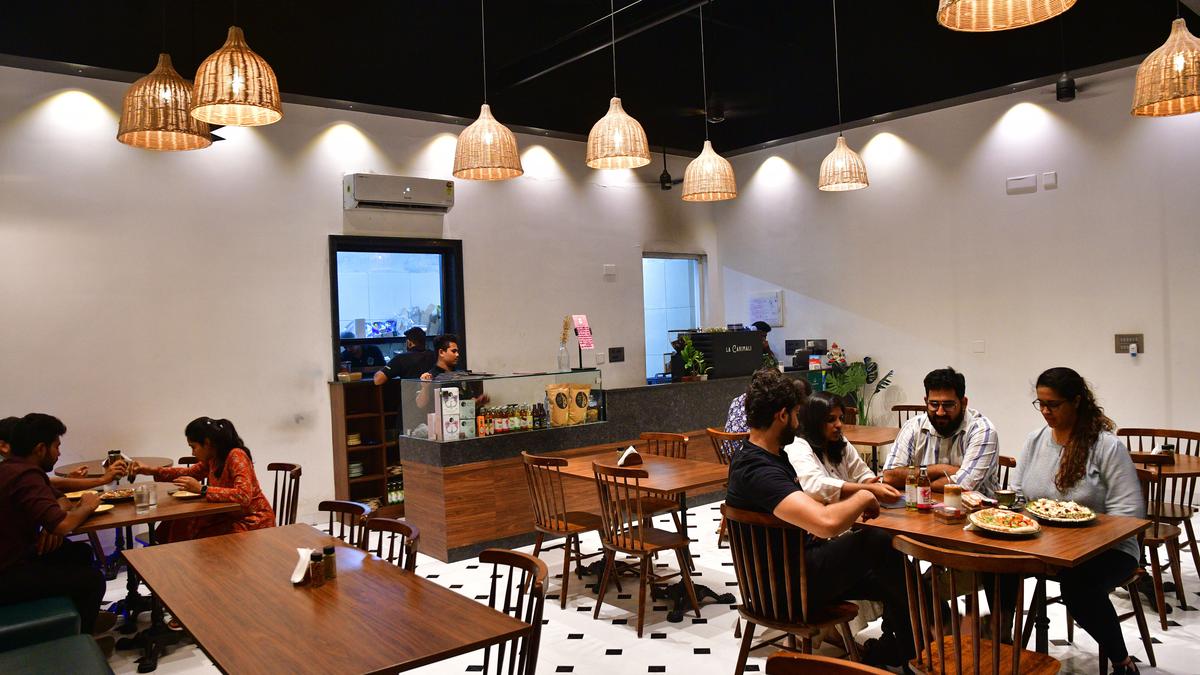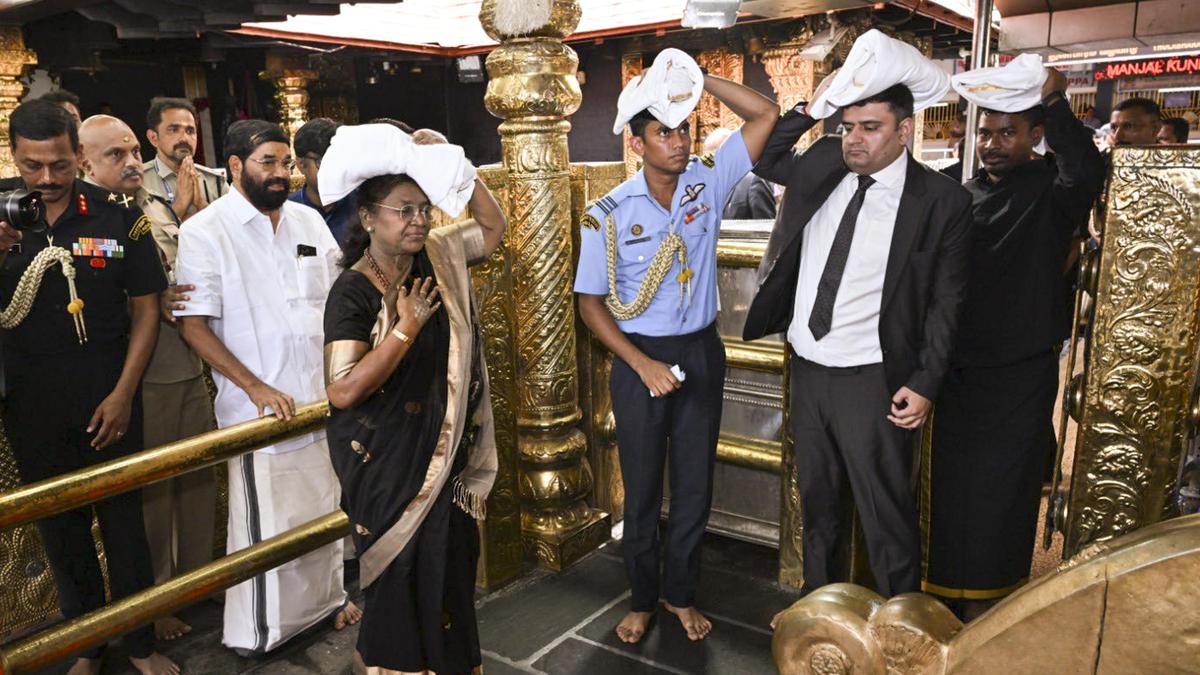Every four years, the American talk show circuit puts the celebrity-baiting and movie promotions on hold for a bit, thanks to election season. Jimmy Kimmel, Jimmy Fallon, Seth Meyers, Stephen Colbert et al have been focused on the upcoming U.S. elections for the last couple of months, covering every new development since Kamala Harris replaced Joe Biden as the Democratic Presidential candidate.
A number of guests representing the Harris campaign — vice president candidate Tim Walz and Congresswoman Alexandria Ocasio-Cortez, among them — have made much-publicised appearances on primetime talk shows. A couple of weeks ago, Walz was a guest on Jimmy Kimmel Live! while Ocasio-Cortez made an appearance on The Late Show With Stephen Colbert. Over on the Republican side, J.D. Vance sat down for an interview with CNN’s Jake Tapper earlier this week.
Tim Walz on Jimmy Kimmel Live!
Both Walz and Ocasio-Cortez’s performances were excellent examples of how American presidential elections are fought on TV — and increasingly, over the internet. The hosts play their part, supplying their politician guests with questions that will give them the maximum chance to respond with unadulterated campaign-speak. It’s a battle of rhetoric, essentially, and a TV studio audience clapping at the end of the answer gives it a certain validatory boost.

And so, when Kimmel asked Walz, “What are some of the lessons from social science class that you wish Americans remembered more?”, Walz promptly responded by saying that at the end of every American election, the defeated candidate makes a conceding call to the victor and shakes their hand. This was a clever, indirect-yet-pointed way to attack Trump over the fact that he never conceded the 2020 election and, in fact, still claims that he had actually won and that election fraud was committed to defeat him (several courts across America have rejected these claims repeatedly).
Ocasio-Cortez, while talking to Colbert, shared an anecdote about watching the TV show Star Trek: Voyager as a child. On cue, Colbert asked her why the show was close to her heart and she replied, “This was the first ship with a female captain, Captain Janeway”, referring to Kate Mulgrew’s iconic role. “It’s not science fiction anymore,” she continued. “We are going to have the first female president!”
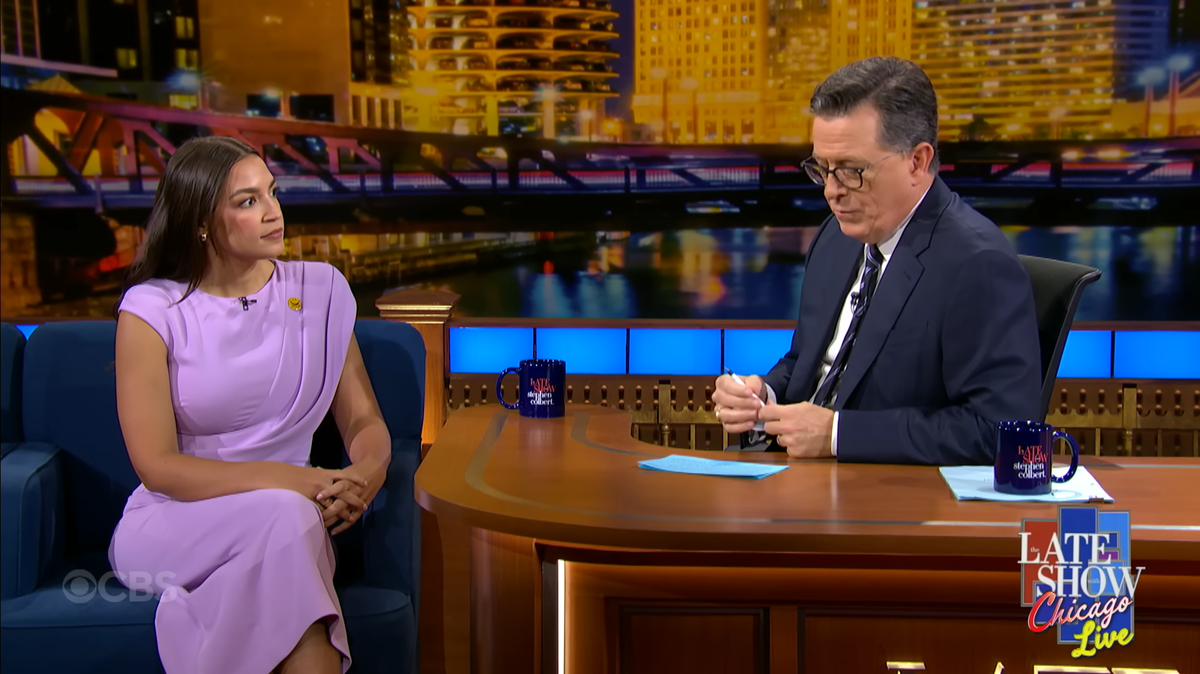
Alexandria Ocasio-Cortez with Stephen Colbert
Decline of liberal TV
Generally speaking, though, the influence of TV talk show hosts has waned in America, with younger audiences increasingly preferring podcasters, YouTubers, and Twitch streamers. Two recent TV slots proved this point in contrasting ways. First, Sacha Baron Cohen revived his character Borat (a fictional Muslim reporter from Kazakhstan) on Jimmy Fallon’s couch. He promptly unleashed an array of jokes that might have worked in the mid-2000s (when the Borat movies enjoyed a measure of commercial success), but come across as insanely racist to young people now. For instance, he said that Harris should never visit Kazakhstan because she is “a woman, a person of colour and married to a Jew”.
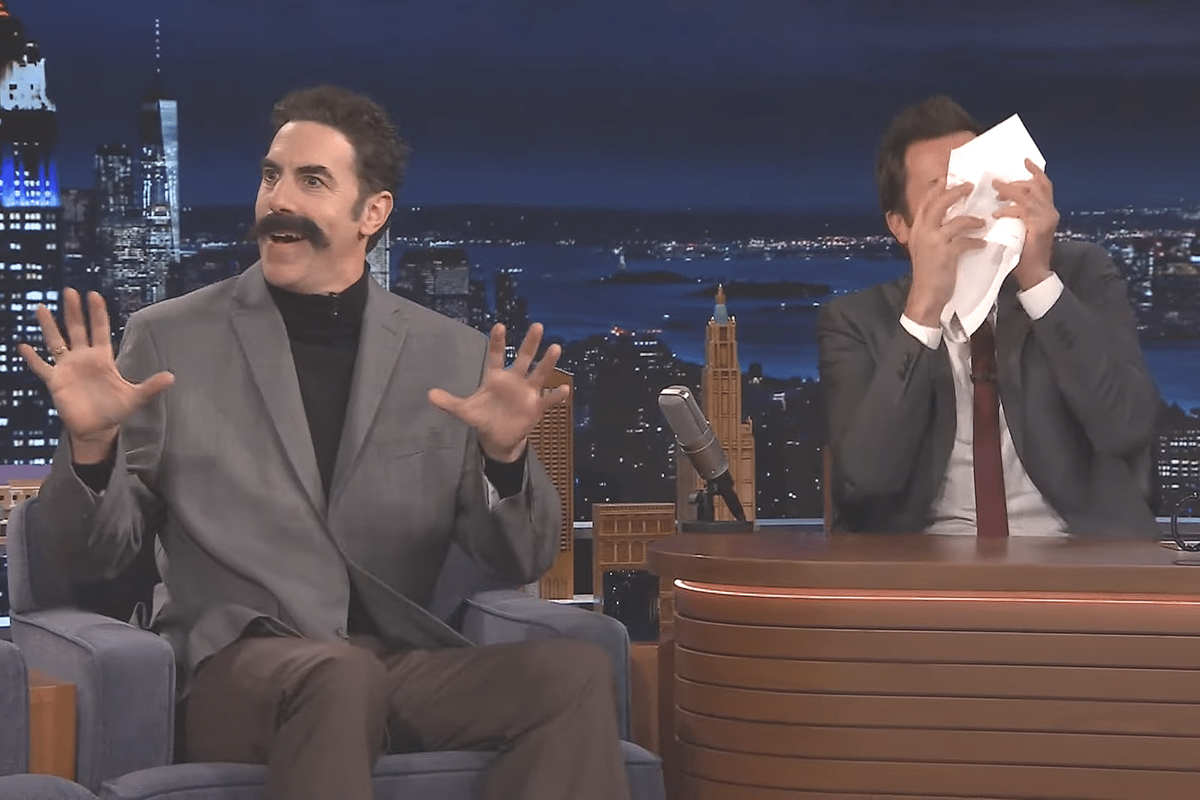
Sacha Baron Cohen on Jimmy Fallon’s couch
Cohen followed it up with, “You already have made three of the four crimes punishable by death. Please do tell me you have made sexy time with an underage bear!” Social media is currently overrun with condemnations of Cohen’s act. The other noteworthy moment came when Jon Stewart made fun of Walz for boasting about an endorsement from Dick Cheney — who Stewart spent several years criticising over the Iraq War. Stewart was brought out of retirement, basically, for this election because the stakes were perceived to be that high — and also because TV networks realised that the new batch of anchors were not pulling the same kind of audience numbers that Stewart regularly did.
The disastrous episodes are signs of the seemingly terminal decline of liberal American TV journalists. Younger, progressive viewers are tired of them running defence for the Democrats, especially at a time when a Democratic administration is funding the ongoing annihilation of Palestine. On the other side of the aisle, young Republican voters do not trust the mainstream media because their candidate has repeatedly painted journalists as inherently corrupt and “crooked”. This is one reason why both candidates (and their proxies) have tried to bypass traditional media and reach out to Internet personalities instead — YouTubers, podcasters and the like.
When influencers can sway elections
Harris made an appearance on the advice and comedy podcast Call Her Daddy, hosted by Alexandra Cooper and Sofia Franklyn. This is the most-listened to podcast by women on Spotify and has over a million followers on YouTube. Trump recently sat down for a long interview with Joe Rogan, the most popular podcaster on Spotify among male listeners. Trump and his VP candidate J.D. Vance were interviewed this month by comedian Theo Von on his popular podcast This Past Weekend w/ Theo Von. During Trump’s conversation with Von, a fairly standard question about America’s opioid crisis spiralled into a bizarre back-and-forth about the merits of cocaine vs other drugs; Trump claimed to have never consumed it while Von is a recovering addict.
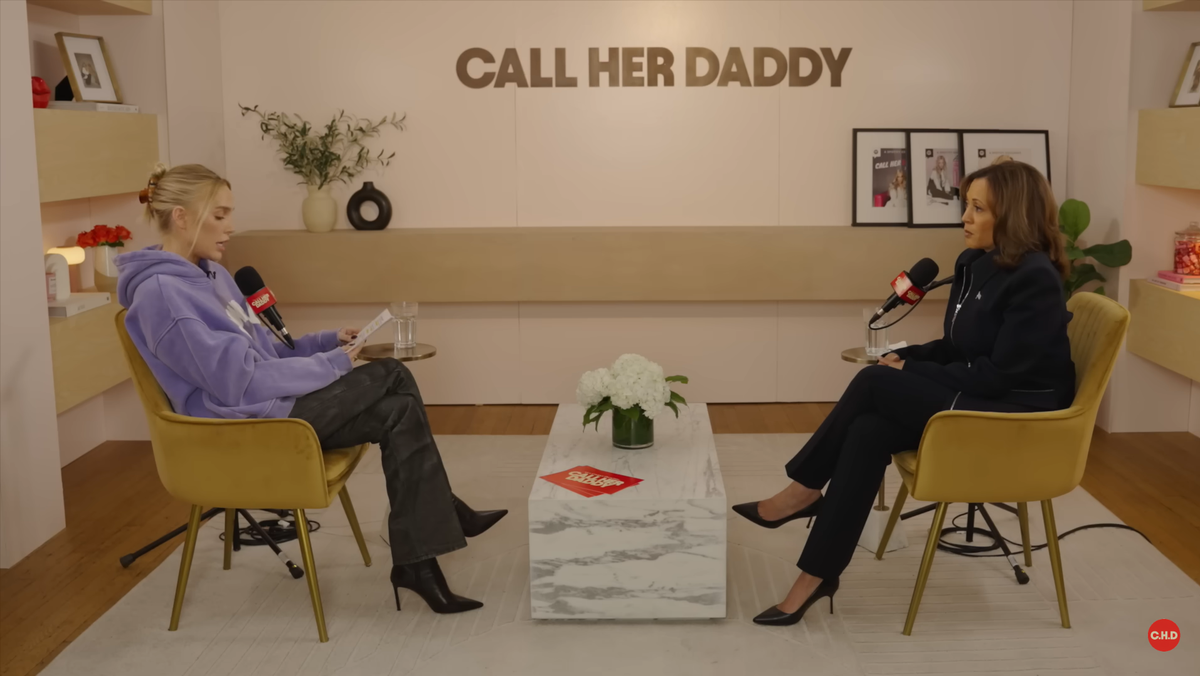
Kamala Harris on Call Her Daddy
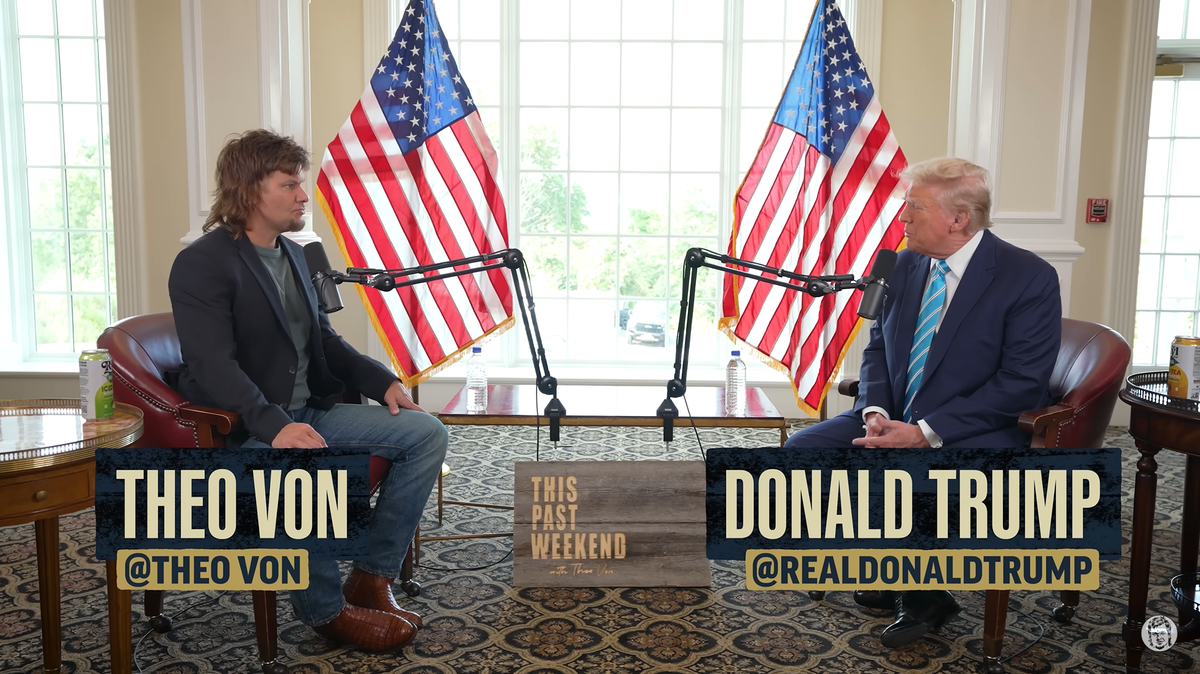
Donald Trump on This Past Weekend w/ Theo Von

Electioneering is all about managing perception and reaching a wide catchment area of potential voters. On both these parameters, online content creators are one-upping their counterparts in traditional media outlets. The day may not be far away when a single YouTuber or TikToker might sway the election one way or another. In fact, the Trump campaign is discovering this in real time, thanks to comedian Tony Hinchcliffe, known mostly for his popular comedy podcast Kill Tony.
During a set he performed at a recent Trump rally in New York, Hinchcliffe made a joke about Puerto Rico being “a floating island of garbage”. Since then, down-ballot Republicans facing re-election in states like Florida and Texas (where millions of Puerto Ricans live) have been trying to back-pedal his words, especially online where their party is getting absolutely cooked.
Aditya Mani Jha is a writer and journalist working on his first book of non-fiction.
Published – November 01, 2024 11:53 am IST



